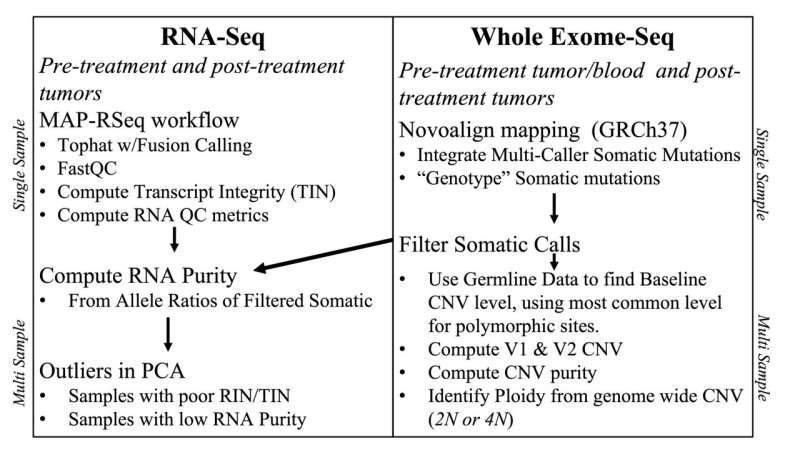Researchers identify drug resistance factors for advanced prostate cancer

In a new study published in Molecular Cancer Research, Mayo Clinic researchers identified critical genomic changes in response to abiraterone acetate/prednisone, a standard treatment option for men with progressive, incurable and castration-resistant prostate cancer.
"We defined a potential strategy for both responders and nonresponders of the drug that may help men overcome resistance and prolong survival," says Liewei Wang, M.D., Ph.D., the Bernard and Edith Waterman Director, Pharmacogenomics Program, Mayo Clinic's Center for Individualized Medicine. Dr. Wang is the corresponding author of the study.
Dr. Wang explains that while several drug choices are available to control disease progression, many questions remain over which drugs to use in individual cases. Also, predictive biomarkers for drug resistance and sensitivity remain primarily unknown.
Abiraterone acetate is a standard treatment option for men with castration-resistant prostate cancer. However, the response rate is limited, no known biomarkers predict prognosis, and alternative therapies for those who failed treatment are unavailable.
In the Prostate Cancer Medically Optimized Genome Enhanced Therapy study, also known as PROMOTE, Mayo researchers revealed DNA sequences associated with response to abiraterone acetate to identify additional treatment options for men with advanced prostate cancer resistant to all standard therapies.
They identified an 11-gene drug panel that provided a new tool to individualize treatment for abiraterone acetate. A genetic testing panel is a laboratory test that looks at a select group of genes. The 11-gene panel predicted a worse prognosis for a subset of primary or metastatic patients enrolled in the study.
In the next step of their analysis in this prospective study, the researchers analyzed whole-exome sequencing and RNA sequence data from 83 patients with metastatic biopsies before and after 12 weeks of abiraterone acetate/prednisone treatment. They identified genomic alterations associated with acquired resistance after 12 weeks of this treatment.
"We analyzed the posttreatment genomic landscape of metastatic biopsies in these patients with metastatic castration-resistant prostate cancer to identify mechanisms of acquired resistance," says Hugues Sicotte, Ph.D., a Mayo Clinic bioinformatician and lead author of the study. "These results may assist with selecting alternative therapies in a subset of abiraterone acetate-resistant patients with the highest risk of having the poorest outcome."
Dr. Sicotte says biomarkers based on the stage-specific landscape of genomic changes in prostate cancer are under investigation.
"Further studies will be needed to test these drug treatments to overcome abiraterone acetate/prednisone resistance and define subgroups of nonresponders," says Dr. Sicotte. "Our goal is to incorporate these into clinical practice for physicians and patients with castration-resistant prostate cancer."
More information: Hugues Sicotte et al, Molecular profile changes in castrate resistant prostate cancer patients pre and post-abiraterone/prednisone treatment., Molecular Cancer Research (2022). DOI: 10.1158/1541-7786.MCR-22-0099


















